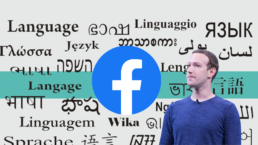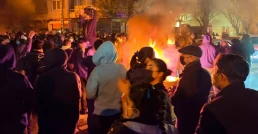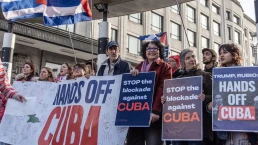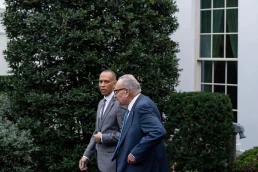By Nick Nguyen and Carmen Scurato, PRISM
So far the Facebook Papers have led to dozens of stories about how the company knew it was failing to remove hate speech, misinformation, and calls to violence in languages across the globe. As much as this focus on Facebook’s global harm is vital, we shouldn’t overlook the role that the social media language gap plays in harming communities within the United States.
On a recent episode of Last Week Tonight, John Oliver discussed online platforms’ failure to curb the spread of non-English misinformation. While companies like Facebook and YouTube have made a few inroads to address the problem in English, they’ve allowed misinformation to spread unchecked in other languages—with disastrous results. In the lead-up to the 2020 election, disinformation campaigns targeted marginalized communities to suppress voter turnout. And during the pandemic, cruel disinformers have blanketed the Latinx community with blatant falsehoods about the COVID-19 vaccine. The community already makes up a higher percentage of the essential workforce and Latinx people are four times more likely to be hospitalized with COVID-19 than the general population.

Oliver’s report of how the targeting of misinformation at diaspora communities in the United States is “exacerbated by the fact that there aren’t alternative sources of news” for these communities in their own languages isn’t a new revelation. This vital gap is one that our organizations, Viet Fact Check and Free Press, have long been fighting to fill. Those efforts include pushing social media platforms to crack down on non-English misinformation: Viet Fact Check has drawn attention to YouTube’s indifference to Vietnamese-language misinformation, and Free Press—along with the National Hispanic Media Coalition and the Center for American Progress—has urged Facebook to remedy the way the spread of Spanish-language conspiracy theories and other lies are fueling hate and discrimination.
We’ve examined how election and health misinformation have harmed our respective communities in the United States. The results confirm a clear pattern of neglect; while the platforms still have a ways to go in enforcing their own policies in English, it is far worse in non-English languages. Even though YouTube banned InfoWars, it ignored the Vietnamese-American version of Alex Jones for months—the company only took action after John Oliver’s segment aired. And despite our efforts to directly flag Spanish-language posts with explicit calls to violence, Facebook’s moderators relied on a shoddy translation to English to justify their inaction. To put it simply, these companies are not doing nearly enough to keep our people safe.
Recent Posts
Leading Papers Call For Destroying Iran To Save It
February 11, 2026
Take Action Now The opinion pages of the New York Times and Washington Post are offering facile humanitarian arguments for the US to escalate its…
Despite Marco Rubio’s Warnings, This is the Time to Go to Cuba in Solidarity Against the Latest U.S. Aggressions
February 10, 2026
Take Action Now When visiting Cuba, one can see quickly the terrible effects of the almost seven decades of the U.S. economic blockade of Cuba.By…
“Hands Off Cuba!”: Left Groups in Europe Mobilize Against U.S. Aggression
February 10, 2026
Take Action Now Hundreds demonstrated in Belgium in solidarity with Cuba as further mobilizations against US imperialism are planned across Europe.……
Democrats Propose Minor Reforms for ICE — and Record Funding
February 10, 2026
Take Action Now Congressional Democratic leaders are asking ICE to agree to reforms, promising to vote for $11 billion in funding for the agency if…




